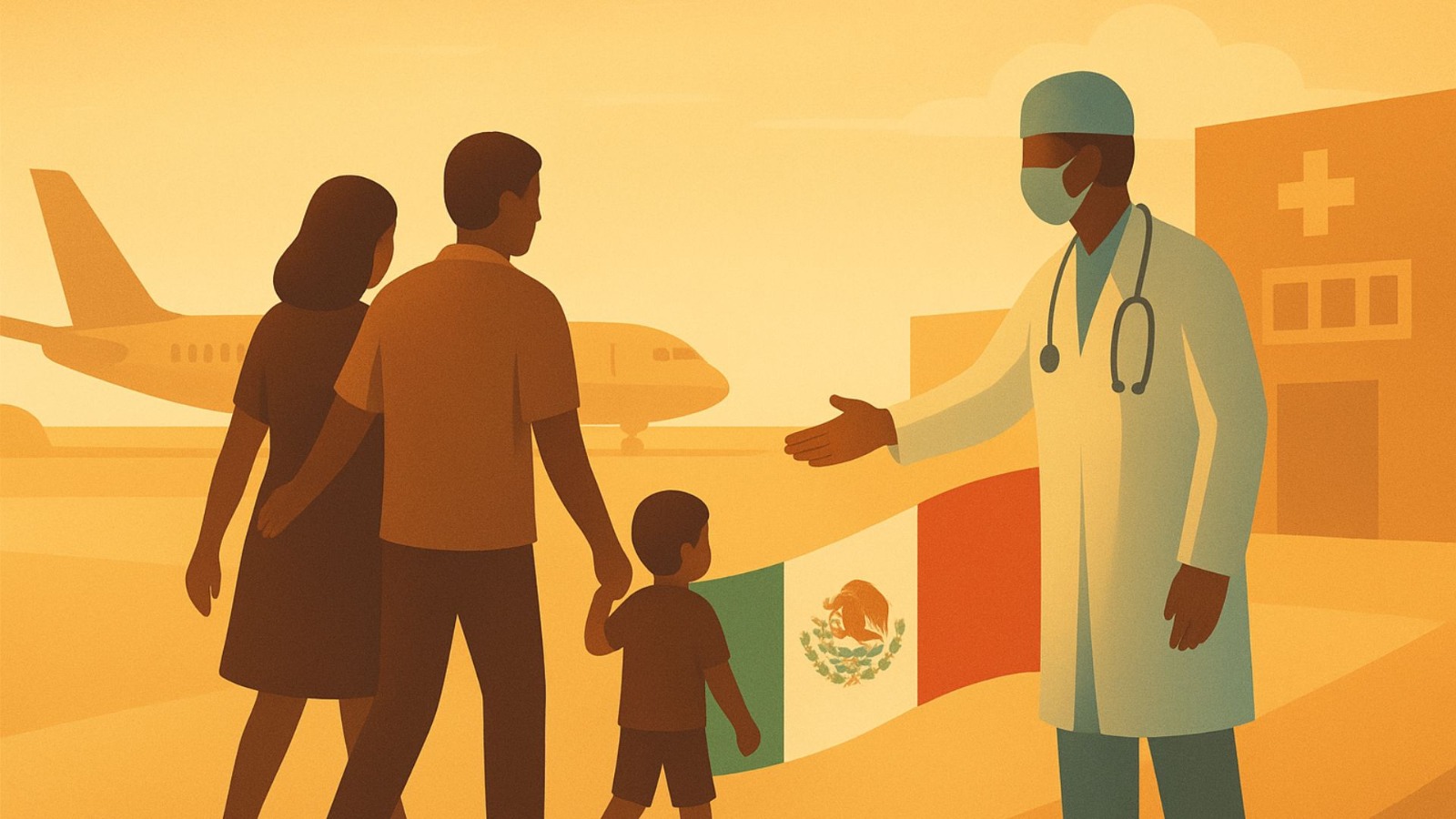
By Juan Manuel Lira. SPR Informa. Mexican Press Agency.
The act of repatriating a fellow citizen from the United States is a moment of great fragility — a moment of deep vulnerability. In this sense, the “Mexico Embraces You” strategy and the “Bienestar Paisano Card” represent a success of the current administration. This “open-door” policy offers an identification card, financial support for transportation, and, crucially, temporary enrollment in the Mexican Social Security Institute (IMSS) as an act of recognition — the Mexican State fulfilling its primary function, namely to reintegrate and protect one of its own and their family.
Naturally, the State seeks to communicate the strength of this strategy. And the best way to do so is through stories that touch our hearts. Recently, we learned of the case of Isabela, a baby with a complex congenital condition, transferred from the U.S. thanks to this strategy and successfully operated on at the High Specialty Medical Unit, Pediatric Hospital of the IMSS’ National Medical Center of the West in Guadalajara, Jalisco. It is a story that should be cherished without reservation — a testament to the extraordinary technical and human capacity that exists within our public institutions.
These emblematic cases are key. They remind us of the system’s potential, the skill of its professionals, and its ability to achieve world-class results. It is objectively good that Isabela is well, and that the IMSS has the capacity to achieve such outcomes. That is not up for debate.
However, from the standpoint of public policy, it is vital to place these stories in their proper context. In public administration analysis, there is a concept known as “governing by anecdote”: the use of exceptional cases — whether resounding successes or tragic failures — to define the entirety of a system. It is a tempting communication tool because improving daily care or service quality is slow and unglamorous, while “miracles” are immediate and emotionally rewarding. Public policies cannot and should not be evaluated by their heroic exceptions, but rather by their results and sustainability.
Isabela’s miracle was not performed by an administrator, a politician, or a communications strategist. Isabela’s miracle was performed, with their hands and knowledge, by the pediatric surgery, anesthesiology, and specialized nursing teams of the Pediatric Hospital at the National Medical Center of the West. It is an absolute merit of the healthcare personnel — those workers who sustain the system day after day.
The success of Isabela’s case is marked by circumstances involving high complexity, considerable specialization, and a precise focus that demonstrates the technical ability of healthcare professionals. However, the real strength of a public health system is measured by the quality of its everyday services.
The repatriated individual receiving their Bienestar Card is generally not seeking a high-complexity surgery. They are seeking, like millions of Mexicans, a timely family medicine appointment. They want their prescription to be fully filled. They need an appointment with a specialist within a reasonable timeframe. They want kind, dignified treatment. In short, they seek a sustainable average.
The same healthcare staff capable of achieving feats like Isabela’s are the ones who face the daily pressure of metrics for millions of consultations and surgeries imposed by authorities. They are the same workers who operate in family medicine units at 100% capacity, who perform miracles despite outdated medical equipment, and who labor under burnout conditions imposed by their own administration.
Public policy reveals an unsustainable tension. On the one hand, we appreciate the artisanal, slow, heroic quality of Isabela’s case. On the other, we impose a massive, industrial, quantity-based performance metric on the same personnel.
Celebrating Isabela’s success is fair and necessary. But using it as the sole metric of the system is dangerous. A robust healthcare system is not only the one that produces big headlines, but the one that quietly raises the average quality of life for all its beneficiaries.
The “embrace” we offer to repatriated citizens upon arriving on Mexican soil will truly be strong when we offer not the possibility of a miracle, but the certainty of dignified and timely care. That is the bridge we must continue to build — the one that connects heroic anecdotes to sustainable standards.
The best healthcare policy is not the one narrated as being a “triumph” of an official at press conferences, but the one lived every day in the doctor’s office, the clinic, the hospital. And that depends entirely on personnel who have already given too much — and to whom we owe not only applause for miracles, but labor justice and recognition for their daily work.
Related: Being Chingón Is Mexican: Unity and Resilience in the Face of Tragedy